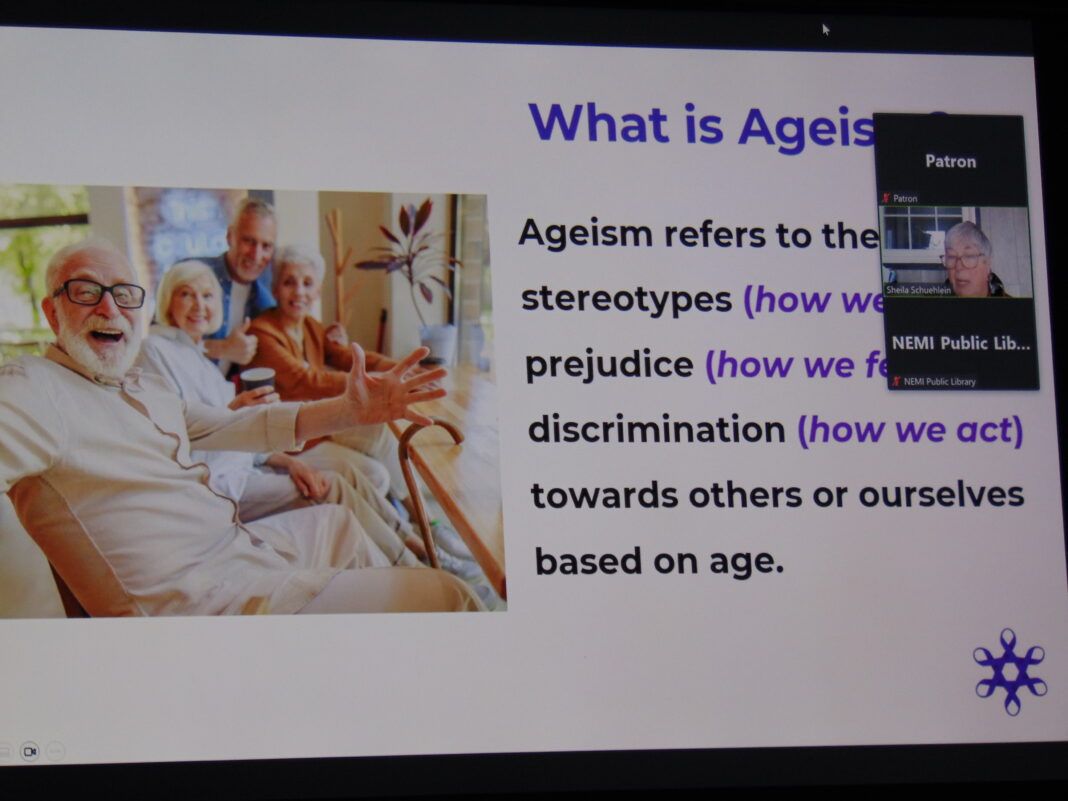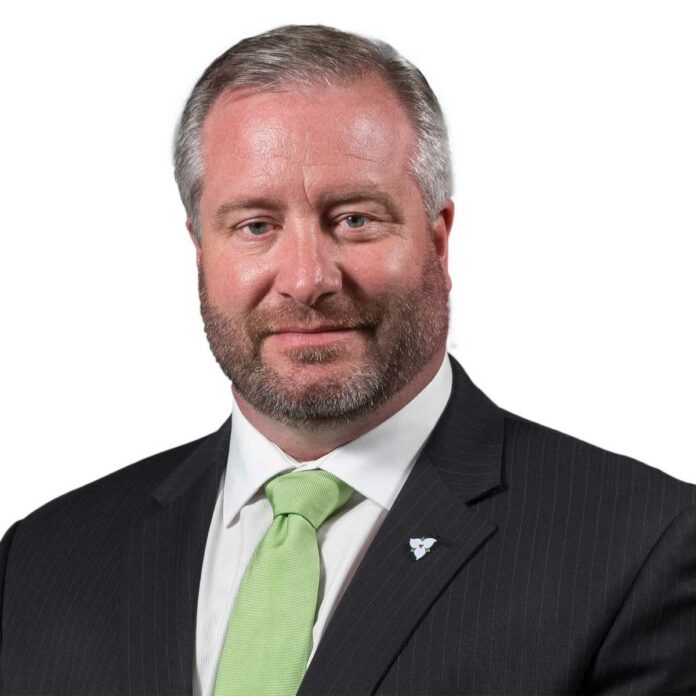LITTLE CURRENT—On Wednesday, March 27 a group of people gathered at the NEMI Public Library to learn about ageism, what it is and how to combat it.
Suzanne Norris, facilitator for the Senior COMPASS Project, which was responsible for bringing the program to the library, introduced the guest speaker, Sheila Schuehlein. “Sheila is from Elder Abuse Prevention Ontario (EAPO) and is joining us by zoom from Cape Breton,” Ms. Norris said. “Sheila is the Regional Elder Abuse Prevention Consultant serving Northern Ontario for EAPO. She is a gerontologist who has developed, facilitated and evaluated health promotion initiatives for over 25 years.” Ms. Norris went on to tell the group that Ms. Schuehlein joined the EAPO team in 2016 with a passion for promoting resiliency in older adults.
Participants sat facing a large TV screen and Sheila Schuehlein brought them her hour-long program complete with graphs, short videos and power point presentation. She began with the question: “What is ageism?” Ms. Schuehlein gave a brief definition of the term: “Ideas, attitudes, beliefs and practices on the part of individuals, that are biased against persons, or groups, based on their age. Often directed to older adults, but not solely directed to the elderly,” Ms. Schuehlein explained. To the extent that older adults don’t fit the perceived social norm, they can be treated as less; being less valued and less visible; they become relegated to second class status; and treated as if they don’t matter as much.
“That’s an awful place to be if you are an older adult,” she added. “That social norm is something we really need to fight against,” Ms. Schuehlein stated, adding that age discrimination is often not taken as seriously as other forms of discrimination, but it is a human rights issue.
She was quick to point out that ageism, or reverse ageism, is not always about older people, young adults are often classed into one group with negative statements directed toward them: ‘They’re lazy, they don’t want to work, etc…” There may be biases not to promote younger, or older adults, excluding them from meetings and educational opportunities.
According to studies done several years ago in Canada, ageism is the most tolerated form of prejudice. But a global report has come up with three strategies to counteract this prejudice. Policies and laws must be put in place, educational activities, and intergenerational contact, which seems to have lessened in recent generations, must be fostered. Pushing forward with these measures will help to diminish these stereotypes. Ms. Schuehlein encouraged the participants to spend more time with grandchildren, offer their skills in mentorship programs, and find ways to help others. “Push back on ageism,” she said, “don’t allow stereotypical statements to go unchallenged.”
Self-directed ageism is an area that most bothers Ms. Schuehlein, when older people begin to develop negative feelings regarding their own age. Pulling out of activities in which they feel they are now too old to take part.
“How many of you have said, ‘I’m having a senior’s moment?’” Ms. Schuehlein asked. Everyone laughed, realizing they are sometimes guilty of fostering the stereotype. Bringing up the point that, at times, ageism can be subtle but impactful.
“Change your focus to the positive,” she stressed, putting the onus on those present to advocate for the older demographic which, she pointed out, is the most heterogeneous group to be lumped into one, with different educational and cultural backgrounds, as well as a host of other variables.
Those present came away with a new sense of purpose and will now be on the lookout for signs of ageism in all areas of their lives.
Library board member Laurie Cook thanked Ms.Schuehlein for her presentation. “I had this sinking feeling that ageing was inevitable, everything about the process was inevitable, but you’re telling us that ‘no, we don’t have to fall into the stereotype,’ and I find that empowering.” Everyone in the room seemed to share Ms. Cook’s sentiments with their heartfelt applause in response.
Elder Abuse Prevention Ontario provides programs, webinars, networks, and lots of information for those wanting to learn more at eapon.ca





